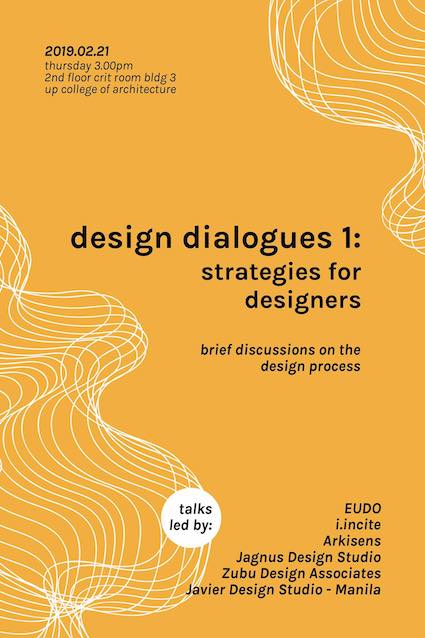
DESIGN DIALOGUES: The importance of finding and understanding your own design process

We are all familiar with the traditional classroom learning setting. The teacher takes the center part of the room and starts to talk. As soon as we reach the end of another of one of those recurring sessions, we sometimes engage in dialogues about what transpired. Although not as much as to achieve mastery of the topics or even have better retention of the knowledge. We may sometimes reflect on how it unfolded—but not often we consider to analyse the impact it had on our learning.
David Skidmore and Kyoko Murakami understand the importance of the spoken language in learning. In their book Dialogic Pedagogy, the authors put to fore the centrality of language—especially dialogue—in teaching and learning concepts. By engaging students in a healthy dialogue about a topic, they are allowed to interpret and negotiate meanings, and even reconstruct the formation of new knowledge. “Young designers cannot live in a vacuum. Access to social media and data is the crux of the current generation where information is usually granted,” says Ar. Gerard Joson, faculty at the University of the Philippines, Diliman, College of Architecture. “It is imperative for everyone to be continually exposed to design dialogues. And to become more critical of issues that is happening or emerging within the industry,” he continues. He also stated that engaging students in a dialogue is a crucial platform because it serves to bring the students closer to a physical and relatable entity.
On Thursday, February 21, the UP College of Architecture will hold Design Dialogues 1: Strategies for Designers. This will be a collection of brief discussions focusing on design process. “A good design process is an integral tool for all designers to create credible work. Discovery should start early on from school so the process can be explored, tested, and evaluated constantly,” Ar. Joson states. “Being aware of your own design process can build your character and self-worth. And that will eventually separate the good designers from the mediocre ones,” he furthers.
Moreover, this activity aims to highlight the importance of experimentation and self-discovery as pillars of good design. “Schools tend to focus on the quantity of project typologies that can be had in a term. However, they eventually miss out on the personal growth and critical development of an individual’s thought process,” Ar. Joson remarks. As such, he finds this discourse as a good start in showcasing the significance of critical thinking in the design process. “It must go beyond mere pragmatic concerns,” he adds.
For Ar. Joson, it is extremely valuable that young designers remain hopeful and inspired. These dialogues aim to keep the desire to create meaningful offerings alive and burning by learning to question the status quo. “True, there are a lot of frustrations with the profession. By providing a dialogue to explore the core processes of designers, we hope to create a better understanding of how we can collectively uplift the standards of how we design,” he finishes.
The very first Design Dialogues will feature designers with strong design convictions. The talks will be led by principals from EUDO, i.incite, Jagnus Design Studio, Zubu Design Associates, and Javier Design Studio Manila. Arkisens’ co-founder and partner Chok Manalo will also be part of the roster of speakers.


